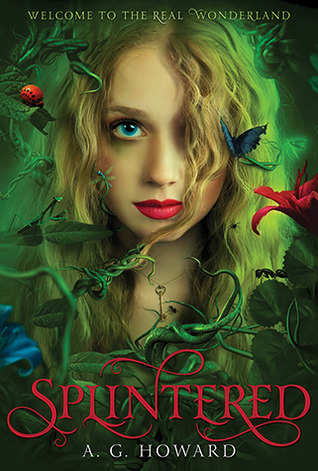I was at a house-warming party a few days ago when I was confronted by someone who had read my book, "The Thirteenth Child". He had had a few drinks and wanted to correct me on a bit of geography in a particular scene. "You can't walk from the railroad tracks to the bay," he assured me. "No street runs from the tracks all the way to the bay."
First of all, let me go on the record as being both surprised and pleased that this fellow had read my book. "So this is the guy..." I thought. I had been hoping to meet him and shake his hand. But, he wasn't in the mood for handshaking, he wanted an explanation. How could I be so stupid?
"Well," says I, "it's not
this town, it's 'Wessex Township'--I made it up."
Now he gives me a look from under his eyebrows--oh yeah? "Then how come the main street is called Mechanic Street just like here?"
I took another sip of my drink. I was kind of enjoying this. "It isn't," I corrected the Guy Who Had Read My Book, "It's Mercantile." Hah!
He kind of deflated a little at that. "Oh...I guess I read that wrong." He avoided me the rest of the evening.
That'll teach him to read my book.
But it didn't escape me that a fellow citizen had recognized what he thought was home in my book's setting. In all fairness, the location of the book was very closely modeled on the town I (and he) live in. In fact, I had a lot of fun recreating my little bit of heaven into a setting for dark and horrible things. And it saddened me when my editor demanded I thin out the dense forest of words describing it. Even so, my former fan had seen exactly what I wanted; after all, if he hadn't, I would have failed an important litmus test in creating the location. The only reason I didn't make it my own town (as I explained to the disappointed man) was that I would have then been tied too tightly to the actual geography, and I didn't want that kind of restriction. Though I was drawing heavily from reality, I was at the same time creating someplace completely unique.
Location certainly plays a huge role in literature. Sometimes it's almost another character: a supporting actor without dialogue. Read Janice Law's "Fires Of London" if you want an example. Brilliantly done descriptions of London during the Blitz; never labored or lengthy (But this is only one example of brilliance in Janice's novel--there are many, many others. If you haven't read it, you owe it to yourself to do so.). Novel-length fiction allows writers a large canvas on which to paint their scenes and settings; short fiction generally requires a few deft strokes to evoke atmosphere and location. Both disciplines are demanding.
I've always enjoyed certain authors for their ability to evoke time and place, Graham Greene being one of my favorites. He traveled the world in his lifetime and spent a great deal of time in foreign lands; seldom as a tourist. His novels certainly reflect this. Had anyone written a major work on Haiti prior to "The Comedians"? Who knew of Viet Nam before the "The Quiet American"? I could go on, but you get the point.
Location is sometimes a destination, sometimes home. Every character has to either live somewhere, or be someplace else. Where he or she is located is often a key part of the plot. Even the journey to arrive at someplace must become a setting in a story.
Even as I write this, a comment by Eve Fisher on a post by R.T. Lawton (also excellent at foreign and exotic locales) mentions Cecelia Holland, reminding me of another author gifted at creating a sense of place. In her case, however, the places are seldom, if ever, within her lifetime, and therefore experience. She is one of the best of those writers who pen the bewilderingly labeled "Historical Fictions". Her novels have recreated settings in medieval Mongolia (thus providing the connection to R.T.'s blog about the Mongolian New Year observance), England on the fateful eve of the Battle of Hastings, and the Iceland of two feuding brothers at the close of the Viking era. No easy feat these things. Not only must she convince us of the verisimilitude of the land she has invited us into, but she must also convincingly portray a time, and a people, that she could only know through research. When I think of the Man Who Read My Book's objection over the placement of a single street in a fictional town, I quail at the prospect of attempting what Cecelia Holland and Janice Law have both accomplished in their various works. Even Graham Greene always wrote in contemporary terms.
Have any of you reading this ever placed a story in a locale that you have never visited or lived in? Though I have been fortunate in my life to have traveled a great deal, I will admit to having practiced this in a story or two. But, I won't say which ones. So far, I've never been caught at it. In my defense, I did do a heck of a lot of research prior to attempting them. But in the overwhelming number of cases, my stories don't stray far from the towns, states, and countries of which I have, at least some, personal knowledge.
Robert Ghirardi, another favorite writer of mine adept at evocative description, said in an interview (and I'm taking the liberty to paraphrase here as I can't locate the article) that modern authors are too bound by what they have personally experienced. He was referring to the strictures placed upon the imagination in this age of near-instant knowledge through the internet and its children. Any deviation from what is generally known can be instantly fact-checked, making fiction writers cautious to stray too much from what they either personally know or can confirm. The only safe way to do that is delve into the realm of fantasy, which it seems, more and more authors are doing. It is also one of the fastest-growing genres in terms of readership, which might be a result of the dearth of truly "exotic" locales in our steadily shrinking world.
Be that as it may, location, exotic or prosaic, provides the canvas upon which we paint our stories, and our success at doing so is as important to our characters as it is to our readers. Would we accept Hamlet as a gloomy Jamaican? Wouldn't Sherlock Holmes have been a very different person as a product of 1880's Mexico?
Finally on the subject of location, I have an upcoming story in Ellery Queen Mystery Magazine called, "Murder Town," that is set in the Yucatan. I'm not going to tell you whether I've been there, or based the setting solely on research--I'll leave that up to you to decide. Either way, I hope I got it right.




 by Janice Law
by Janice Law
 The answer to this is kept in suspense and many of the episodes are constructed as investigations, as Carrie Mathison attempts to prove her suspicion that Brodie has been 'turned' during captivity. Even when it is clear that Brodie is not what he seems, his complex character and his mix of restraint and violence prevent any easy answers.
The answer to this is kept in suspense and many of the episodes are constructed as investigations, as Carrie Mathison attempts to prove her suspicion that Brodie has been 'turned' during captivity. Even when it is clear that Brodie is not what he seems, his complex character and his mix of restraint and violence prevent any easy answers.